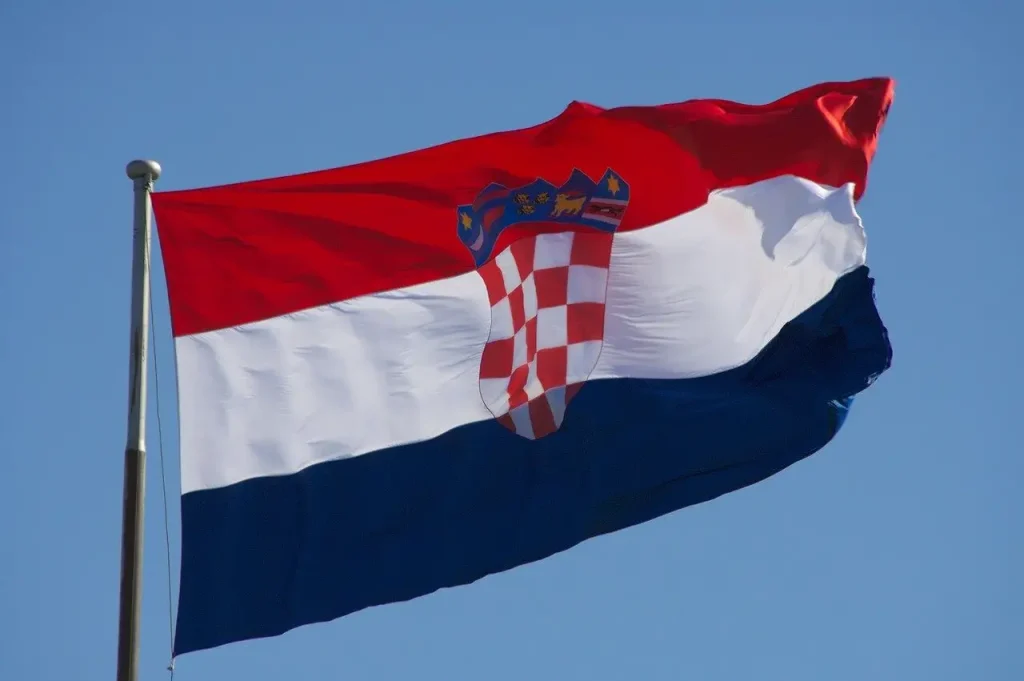A Bit of Background
Before we can discuss recent events in Croatian economic and foreign policy, we should look back a little further. Prior to succession from communist Yugoslavia, Croatia existed in many forms over the last several centuries. Lying at the crossroads of central Europe, the Mediterranean, and the Balkans, Croatia has a history that is as long and rich as its coastline. While it is difficult to pinpoint an exact date for the origins of Croatian nationhood, the elevation of the Dutchy of Croatia to kingdom status in 925 is a sufficient starting point. The Kingdom of Croatia maintained its independence until 1102 when it entered a personal union with Hungary, marking the beginning of over 800 years of foreign rule.
The subsequent eight centuries were turbulent, to say the least. Large portions of Croat inhabited territory changed hands as regional powers like the Ottoman and Venetian empires vied for dominance in southeastern Europe. This situation persisted until between the late 18th and mid 19th centuries with the fall of Venice and the subsequent establishment of the Austro-Hungarian compromise in 1867. Following the dissolution of Austria-Hungary post-WWI, Croatia was incorporated into the short-lived Kingdom of Yugoslavia. After a brief stint as a Nazi puppet state during WWII, Croatia was reincorporated into the land of the south Slavs, giving birth to the Socialist Federal Republic of Yugoslavia, a communist dictatorship that lasted for almost five decades. Independence was finally won after the Croatian War of Independence which ensued from 1991 to 1995.
Recovery and Leading Up to EU Membership
Coming out of a brutal conflict, the impacts of war can still be felt today. Croatia had won its independence but at a significant cost. Thousands of lives were lost, and thousands more were displaced. In the years immediately following, a period of reconstruction began as damaged cities were rebuilt the state reconsolidated the institutions that had been damaged or destroyed during the war. Going into the 21st century, Croatia entered a period of shaky but upgraded stability and modest economic growth. Ties with the European Union improved and an application for membership was lodged in 2003.
The road to EU accession was long and at times tedious. The Union required Croatia to agree to judicial reforms as well as cooperation with the International Criminal Tribunal for the former Yugoslavia. These issues became somewhat contentious at the time, delaying the opening of accession talks. Fortunately, they were resolved to the satisfaction of both parties, allowing negotiations to begin in 2005, hailing the beginning of Croatia’s European future. The next eight years were spent opening and closing the 35 chapters of the accession acquis. There was a brief ten-month delay due to the Piran Bay border dispute with Slovenia. But the restraints were eventually lifted, paving the road for Croatia’s EU membership in 2013.
European Integration: Croatia Today
Since 2013, Croatia has worked consistently to implement reforms that have firmly established it as a bona fide EU member. The right to freedom of movement probably represents the most significant change to the average Croatian’s life. EU states have the right to impose restrictions on new members. So, European labour market access has been one of the more obvious signs of progress within the union. Additionally, Switzerland granted Croatians equal residency and labour privileges, putting Croatia on par with other EU citizens in all associated countries.
Furthermore, Croatia has made huge advances towards Schengen and Eurozone membership. In December of last year, prime minister Plenković announced that he expects final decisions on both application procedures in 2022. These treaties represent progress not only to Croatia but to the EU as a whole, providing fresh advances to a stagnating Europe.
As Croatia moves further along the road of development, the small country will continue to face challenges. Only in the last few years, Croatia has had to manage rapid population decline, a migrant crisis, unusually frequent natural disasters, and a global pandemic. These stressors represent just a few examples of the trials that will test Croatian resilience in the years to come.
But for now, Croatia should be proud of its achievements. Croatia has carved a crescent-shaped niche for itself on the world stage, going from a vague war-torn corner of southeastern Europe into a country renowned for its natural beauty, sports icons, and rich history. Croatia serves as an example for other western Balkan nations, showing that despite a complicated history, a bright future remains possible. So, wherever you may be reading this, as you contemplate Croatia’s 30-year anniversary, be considerate of the past, mindful of the future, and appreciative of the present.
For more on politics in Croatia, follow TCN’s dedicated page.










